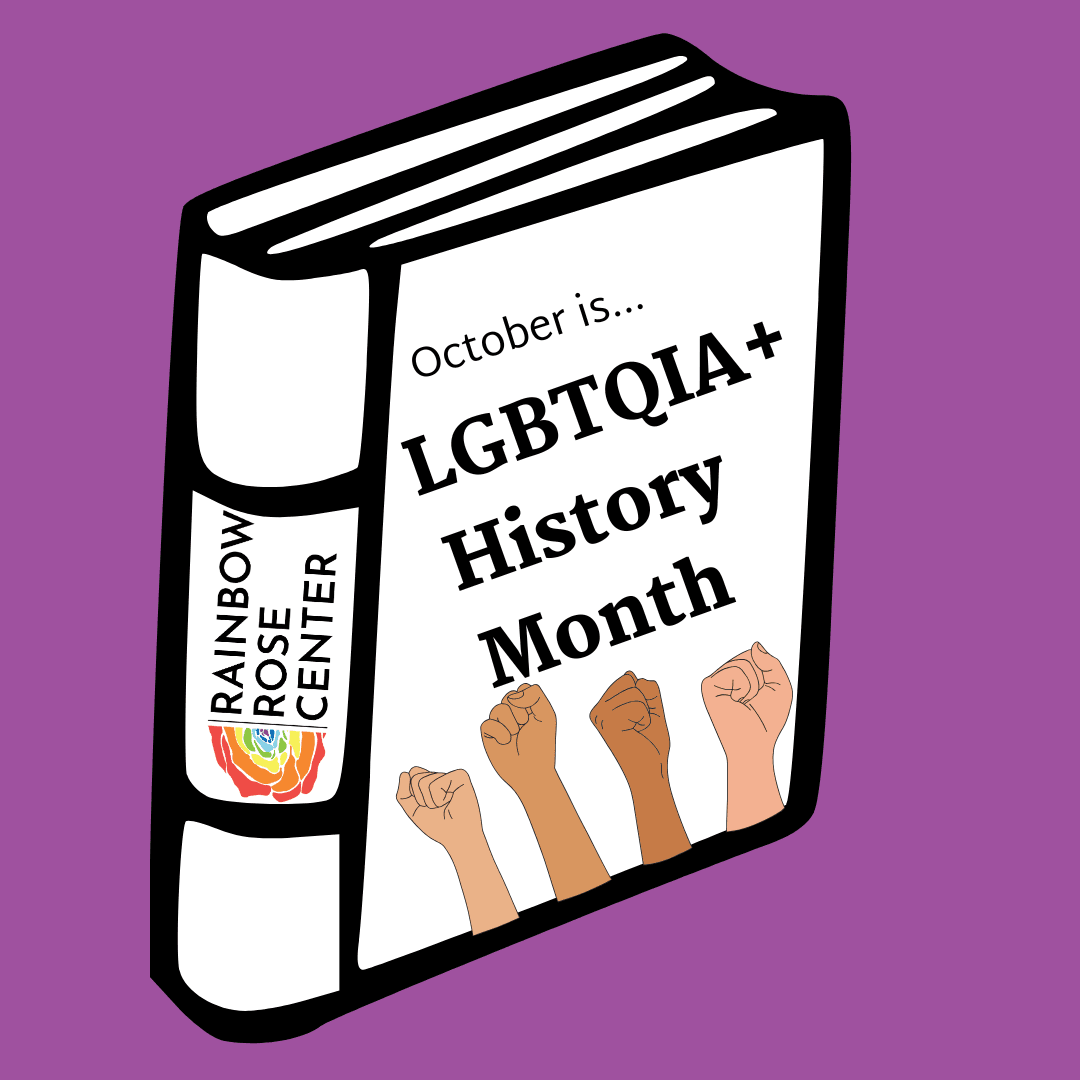
Please join us in celebrating and honoring LGBTQIA+ History Month. Taking place every October, this month allows us to reflect on what came before, and where we are going next.
—
The LGBTQIA+ community has always been intersectional, with people of diverse backgrounds and life paths. Every single person deserves to be part of pride and have access to the community. As Marsha P. Johnson said, “no pride for some of us without liberation for all of us.”
One often overlooked intersection is disability. The HRC found (via the 2020 Behavioral Risk Factor Surveillance System) that 1 in 3 LGBTQIA+ adults self-reported a disability, as opposed to 1 in 4 of non-LGBTQIA+ adults. The number was even higher for transgender adults - 52% self-reported a disability. Accessibility is always important in and of itself, but we have a duty to make sure our LGBTQIA+ spaces are as accessible and inclusive of different needs as possible.
For further reading, check out the World Institute on Disability’s article on some current disabled LGBTQIA+ activists, and follow them to keep learning!
—
Another intersection that is all too often overlooked is race. This week, we would like to highlight two Latinx trans activists - Bamby Salcedo and Silvia Rivera.
Bamby Salcedo (born 1969) is the President and CEO of the TransLatin@ Coalition. In addition to her work uplifting the trans and LGBTQIA+ community, her work includes focus on immigration, HIV, youth, and more. Salcedo’s efforts span from local to international, and she has been rightly acknowledged through awards and documentaries. To learn more, check out her website here.
Silvia Rivera (1951-2002) was a powerhouse and veteran of the 1969 Stonewall Riots. She fought to uplift and include the voices of trans individuals, especially trans people of color, in the larger gay rights movement. Working with Marsha P. Johnson, Rivera started the Street Transvestite Action Revolutionaries (STAR) in the early 1970s. This group focused on issues facing trans individuals in New York City, along with providing housing for those in need. Despite ongoing battles with substance abuse and housing instability, she showed up for her community. Her legacy continues through the Sylvia Rivera Law Project (SRLP), which was founded soon after her death. To learn more about Sylvia Rivera, check out the SRLP website, or this biography from the National Women’s History Museum.
